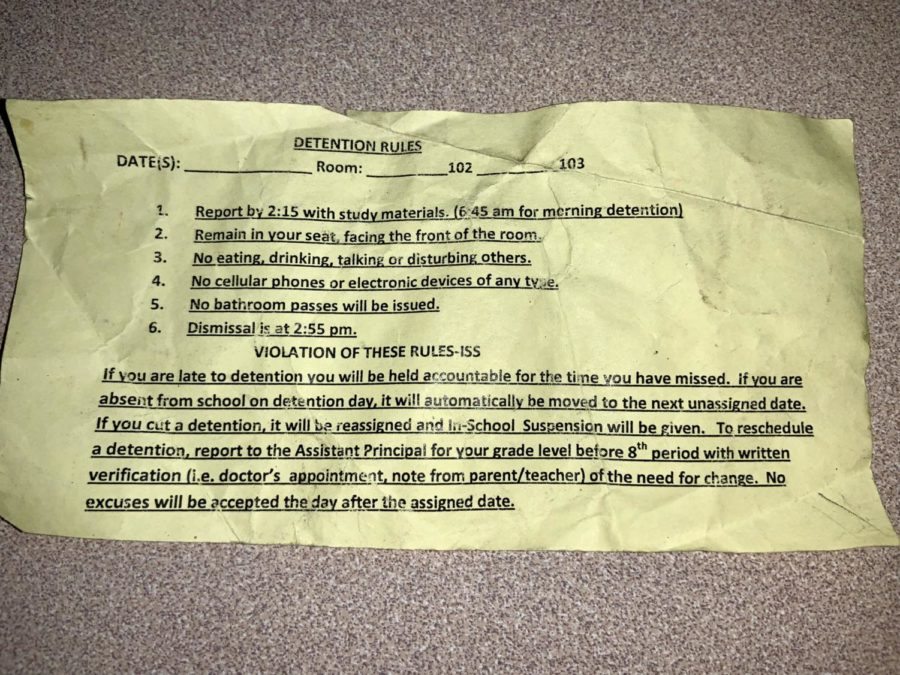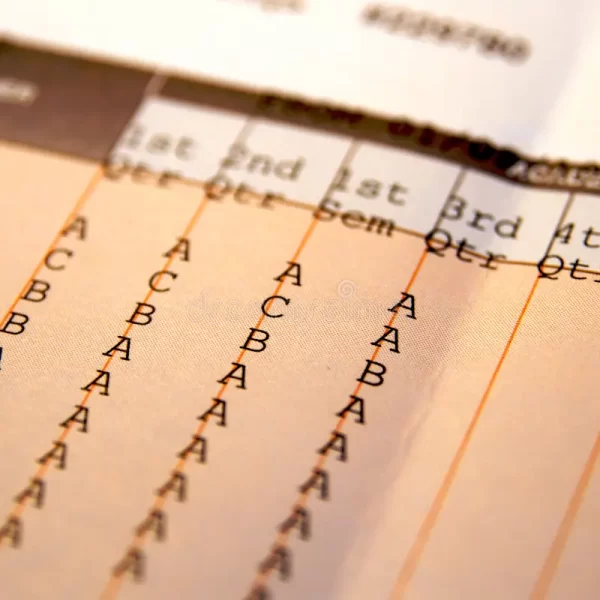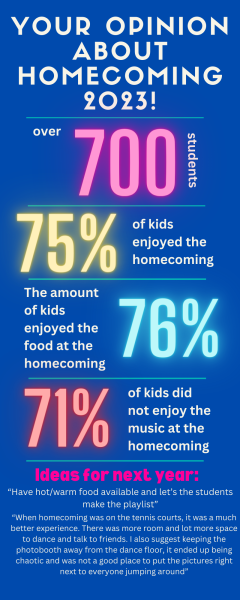Detention Policy Needs a Change
It’s Monday morning. As junior Joey Bondiskey pulls into the parking lot, he looks down at his phone: 7:34. After signing in at the front desk, the hall monitor hands him that little yellow slip of paper that’s going to put a damper on his afternoon.
We all know what it is: the detention slip. That same detention that Dr. Rudnesky announces over the loudspeaker to all the kids who are already in school before homeroom.
The policy sounds a little different this year through. No warning: one second late means one 40-minute detention. However, the administration should revise this policy by issuing a warning for a first offense because doing so would provide students with the opportunity to learn from the experience.
The HHS Student Handbook cites the following policy regarding lateness: “ If a student is late to school, the following actions may be taken:
If the student arrives by 8:27 a.m. he/she will be assigned an office detention.
If a student arrives between 8:27 a.m. and 11:43 a.m., he/she will be assigned a detention and will be marked absent for a half-day.
If a student arrives after 11:43 a.m., he/she will be assigned a detention and will be marked absent for the entire day.”
A warning seems like a fair way for students who are late for the first time. (Similar to getting a warning from a police officer is your first speeding ticket. The warning is effective enough to put people on guard and makes people extra aware. Show some grace; it goes a long way.)
It seems unfair for there to be no difference in penalty for lateness between 1 minute and 56 minutes (until 8:26). What, then, is the incentive to make it to school before 8:26 if the penalty will be the same (aside from missing out on class content, but most can get notes off of friends).
Additionally, the policy doesn’t encourage first period attendance in a meaningful way. However, if the penalties varied a bit (5 minutes late vs. 45 minutes late), there would be more incentive for students to get to school sooner.
Dr. Rudnesky, one of the vice-principals, compared detention to a study hall. She also noted that the administration does try to use judgement if a student is late because of a unique situation or circumstance. She also explained that single detentions for lateness do not go on any records that would harm you, but after multiple detentions, the situation differs.
When it comes to others out of the school, like parents, detentions are a big deal and end up with the child getting grounded.
Policies like this only hurt students and don’t help, so the administration should consider revising it.
















